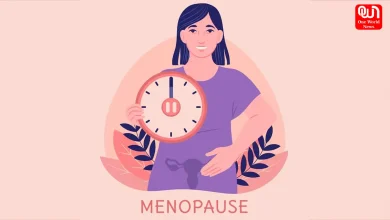Avoiding medication overload: The risks of taking multiple prescriptions and tips for safe and effective deprescribing
If you're taking multiple medications, it's smart to be aware of potential problems.
Avoiding medication overload: The risks of taking multiple prescriptions and tips for safe and effective deprescribing
For many people, from young adults managing anxiety to elderly folks managing chronic diseases, swallowing a handful of tablets is a daily ritual. In the United States, 13% of individuals use five or more prescription medications. Of individuals 65 and over, 42% fall into that category. It’s a good idea to be aware of potential issues if you take various medications. Experts refer to this phenomenon as a “prescribing cascade,” in which a side effect from one medication might trigger another, and so on
 .
.
Read more –Latest – Listeria food poisoning outbreak in US; symptoms to watch out for, foods to avoid
Years of use of some medicines can be harmful. Others have adverse drug interactions or quit working altogether. Even a medication that is initially well accepted can have side effects that eventually impair cognition and result in accidents from falls. Dr. Elizabeth Bayliss, a deprescribing specialist at Kaiser Permanente’s Institute for Health Research in Aurora, Colorado, stated, “As we age, our metabolism changes.” “Everyone may experience changes in their ability to metabolize long-term medications.”
Read more –Unlocking the Benefits: Why You must have a Fish Oil Diet
This whole issue, according to the nonprofit Lown Institute, is a drug overload that will result in 4.6 million hospital visits this decade. Ask for a medication review if you feel that your daily pill regimen is becoming too strict. This is how you begin the process of “deprescribing.”
Ask for prescription checkup-
Lisa McCarthy, a pharmacist and University of Toronto expert in deprescribing, advised starting with a trusted practitioner. Asking your doctor should not wait until the conclusion of a fifteen-minute session. Rather, schedule a specific time and inform the person booking that you would like to discuss your medications, McCarthy advised. If many prescribers are involved, your doctor might not be fully aware of everything you’re taking, and some medical professionals are reluctant to oversee prescriptions from other sources. According to pharmacist Bradley Phillips of the University of Florida College of Pharmacy, at that point, a pharmacist can assist by going over everything and compiling recommendations you can give to your doctors. “We’re regarded as the drug experts,” Phillips remarked.
Sudden Medicines Withdrawal Is Risky –
While some medications can be stopped suddenly, others need to be tapered down gradually to avoid unpleasant withdrawal symptoms or possibly fatal seizures. It is especially crucial to taper medications for depression, sleeplessness, and anxiety to gradually lower dosages. Therapist Molly Bernardi of Spokane, Washington, started reducing her dosage after 20 years of taking different medications for these ailments. The 45-year-old believed that her deteriorating digestive, balance, memory, stiff muscles, and flickering dots across her field of vision were all related to the medications. She was on four drugs, which she progressively stopped when scans revealed no further ailments. Bernardi declared, “It’s been the hardest thing I’ve ever done.”
We’re now on WhatsApp. Click to join
Like this post?
Register at One World News to never miss out on videos, celeb interviews, and best reads.








